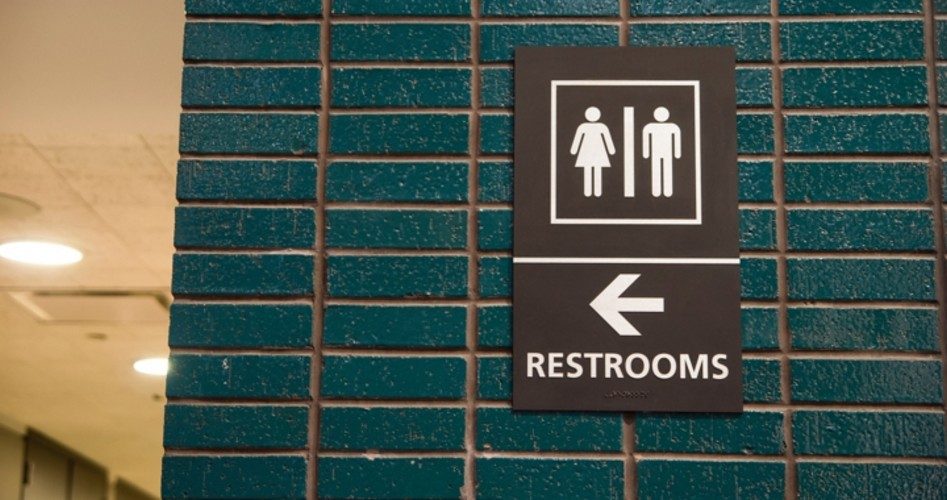
The U.S. Department of Education will no longer investigate transgender students’ claims that being forced to use school restrooms corresponding to their biological sex amounts to discrimination under Title IX of the Education Amendments of 1972.
When asked Thursday by BuzzFeed News if the department’s current position is that Title IX does not cover transgender students’ restroom complaints, spokeswoman Liz Hill replied, “Yes, that’s what the law says.”
“Title IX prohibits discrimination on the basis of sex, not gender identity,” Hill elaborated. “Where students, including transgender students, are penalized or harassed for failing to conform to sex-based stereotypes, that is sex discrimination prohibited by Title IX. In the case of bathrooms, however, longstanding regulations provide that separating facilities on the basis of sex is not a form of discrimination prohibited by Title IX.”
In May 2016, the Obama administration issued guidance to local school districts stating that transgender students had the right to use the bathrooms of their choice under Title IX. Nine months later, the Trump administration rescinded this guidance, though at that time it did not state an official position on whether Title IX covered transgenders’ bathroom complaints. Instead, according to the Washington Post, Education Secretary Betsy DeVos “said states and individual school districts should be able to determine how to accommodate transgender students,” a perfectly reasonable and constitutional assertion. Candice Jackson, acting head of the Education Department’s Office for Civil Rights, later issued a memo saying dismissal of a bathroom complaint was “permissible” but not mandatory.
The reversal of a very short-lived, unofficial federal policy — it was mere guidance, not a properly promulgated regulation, let alone a law — is, however, being treated as an earth-shattering event by the pro-LGBT crowd.
“Washington Sen. Patty Murray, the top Democrat on the Senate’s Health, Education, Labor and Pensions Committee, said that ‘choosing to ignore the rights of transgender students and to not enforce Title IX when it comes to their protection is an unambiguous step backwards for civil rights in this country,’” reported CNN.
Sarah Warbelow, legal director of the Human Rights Campaign, called the policy change “reprehensible,” adding, “The department’s failure to act conflicts with the law in multiple jurisdictions, including federal circuits, and further emboldens those who seek to discriminate against transgender students.”
Some federal appeals courts have suspended local schools’ restroom policies on the theory that Title IX gives transgender students the right to use the restroom corresponding to their “gender identity.” The judges in these courts argue that the law is “ambiguous,” wrote BuzzFeed News. “The term ‘sex’ — including in the law concerning separate restrooms — is not defined as referring to gender identity or a person’s sex as identified at birth.” That, of course, is because no one in 1972 had yet concocted the notion that a boy could become a girl, or vice versa, simply by claiming to be one; everyone understood what “sex” meant.
The Supreme Court has not weighed in on the issue. It had the opportunity to do so when a Virginia transgender student appealed a lower court’s unfavorable decision to the high court, but it sent the case back to the appeals court when the Trump administration rescinded the Obama administration guidance that undergirded the student’s argument.
DeVos seems to understand her role better than the media and LGBT activists do. “The secretary,” Hill told CNN, “would contend that it is the job of Congress or the courts, not the bureaucracy, to determine whether or not the term ‘sex’ under Title IX encompasses ‘gender identity.’” For a shift as monumental as that desired by transgender advocates, it should surely be up to Congress to modify the law. The courts should not be reading into the law meanings of words that were never contemplated at the time of its passage.
In truth, Title IX should be not merely amended but repealed, as should the Education Department itself. The federal government has no constitutional authority to dictate school policies to states or, for that matter, to be involved in education in any other fashion. Still, this small step in the direction of sanity and federalism is to be applauded.




